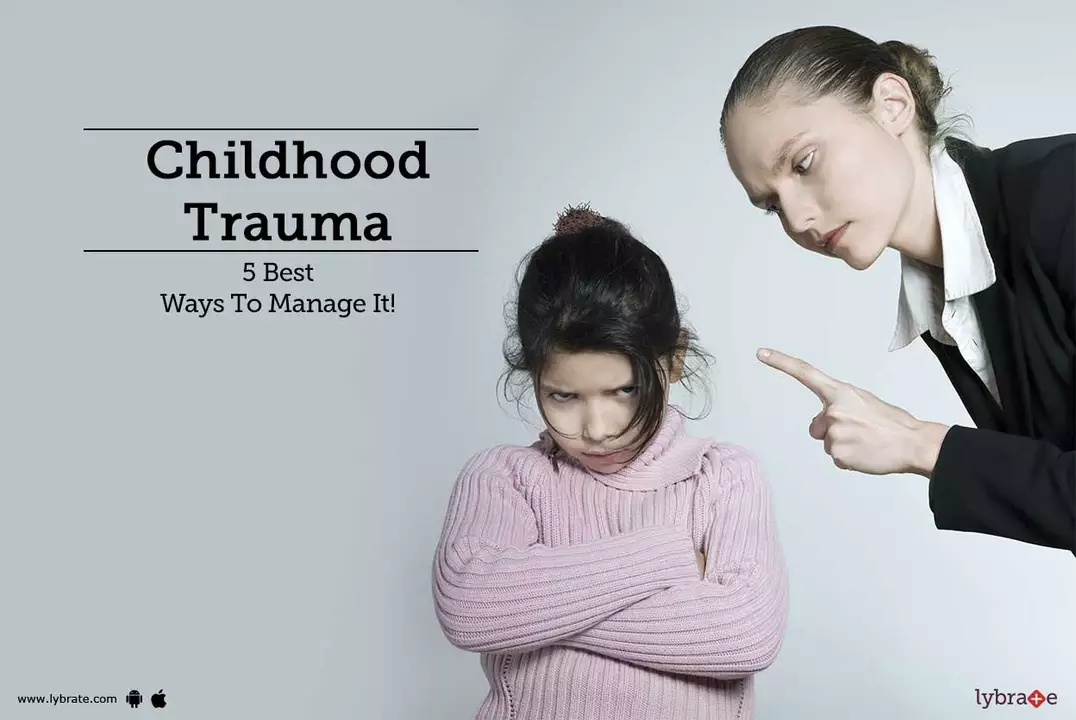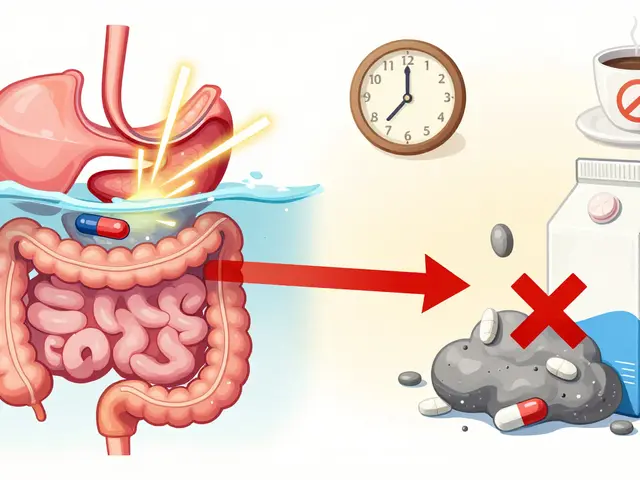
Understanding Childhood Trauma
Childhood trauma is a significant and unfortunately common experience for many children. Traumatic events can include physical or emotional abuse, neglect, witnessing violence, or experiencing a life-threatening event. These experiences can have a lasting impact on a child's emotional, cognitive, and social development. It is essential to understand the various types of trauma and how they can affect a child's behavior and overall well-being.
In this article, we will discuss the link between childhood trauma and behavior disorders. We will explore the different types of trauma, their potential effects on a child's behavior and development, and strategies for helping children cope with and recover from their traumatic experiences.
Types of Childhood Trauma and their Effects
There are several different types of trauma that a child may experience, each with its own unique effects on their behavior and development. These can include:
Physical Abuse
Physical abuse involves any act of violence or harm inflicted upon a child. This can lead to a range of behavioral issues, such as aggression, self-harm, and difficulties with emotional regulation. Children who have experienced physical abuse may also struggle with trust and attachment, leading to difficulties in forming healthy relationships.
Emotional Abuse
Emotional abuse involves verbal or psychological mistreatment that damages a child's self-esteem and emotional well-being. This can lead to feelings of worthlessness, anxiety, and depression. Children who have experienced emotional abuse may also have difficulty forming secure attachments, trusting others, and expressing their emotions in a healthy way.
Neglect
Neglect occurs when a child's basic needs, such as food, shelter, and emotional support, are not met. This can lead to issues with emotional regulation, attachment, and trust. Children who have experienced neglect may struggle with feelings of insecurity, low self-esteem, and difficulty connecting with others.
Witnessing Violence
Children who have witnessed violence, such as domestic abuse or community violence, may experience a range of behavioral and emotional issues. These can include anxiety, depression, aggression, and difficulties with emotional regulation. These children may also be at greater risk for developing post-traumatic stress disorder (PTSD).
The Connection between Childhood Trauma and Behavior Disorders
Research has shown that there is a strong connection between childhood trauma and the development of behavior disorders. Children who have experienced trauma are at a higher risk of developing a range of behavioral and emotional issues, such as conduct disorder, attention-deficit/hyperactivity disorder (ADHD), oppositional defiant disorder (ODD), and other mental health disorders.
These behavior disorders can manifest in various ways, such as aggression, impulsivity, difficulty paying attention, and defiance. The severity and type of behavior disorder can vary depending on the child and the specific circumstances of their trauma. However, it is crucial to recognize the connection between these experiences and the development of behavior disorders in order to provide appropriate support and intervention.
Identifying Signs of Trauma and Behavior Disorders
It is essential for parents, teachers, and caregivers to be aware of the signs that a child may be struggling with the effects of trauma and the potential development of behavior disorders. Some common signs to look for include:
- Changes in mood or behavior, such as increased aggression or defiance
- Difficulty paying attention or following directions
- Withdrawal from social activities or relationships
- Changes in academic performance
- Signs of anxiety or depression
- Difficulty sleeping or nightmares
- Physical symptoms, such as headaches or stomachaches
Recognizing these signs is an important first step in providing support and intervention for children who may be struggling with the effects of trauma and behavior disorders.
Supporting Children Who Have Experienced Trauma
Supporting children who have experienced trauma is crucial in helping them cope with their experiences and minimizing the risk of developing behavior disorders. Some strategies for providing support include:
- Creating a safe and nurturing environment where the child feels comfortable discussing their experiences and emotions
- Encouraging open communication and active listening
- Providing consistent routines and structure
- Offering emotional support and validation
- Seeking professional help, such as therapy or counseling, if necessary
By providing a supportive and understanding environment, we can help children heal from their traumatic experiences and reduce the risk of developing behavior disorders.
Conclusion
In conclusion, there is a clear link between childhood trauma and the development of behavior disorders. By understanding the types of trauma and their potential effects on a child's behavior and development, we can better identify and support children who are struggling with these issues. By providing a safe, nurturing, and understanding environment, we can help children heal from their experiences and reduce the risk of developing behavior disorders. It is our responsibility as parents, teachers, and caregivers to recognize the signs of trauma and provide the support and intervention necessary for our children to thrive.






7 Comments
Trauma in childhood casts a long shadow over development, and it's worth pausing to consider how that shadow shapes behavior. The article lays out the mechanics clearly, linking early wounds to later conduct issues. It reminds us that we can't separate the child’s present actions from past hurts. Recognizing this connection is the first step toward meaningful intervention.
Thank you for sharing this comprehensive overview of childhood trauma and its behavioral consequences.
It is essential to remember that trauma does not discriminate; any child can be affected regardless of background.
Physical abuse often manifests as aggression or self‑harm, and early identification can prevent a cycle of violence.
Emotional abuse erodes self‑esteem, leading to anxiety and depressive symptoms that may appear as defiance.
Neglect deprives children of basic needs, creating insecurity that can surface as attention problems.
Witnessing violence exposes children to chronic stress, heightening the risk for PTSD and conduct disorders.
Research consistently shows a strong statistical link between these trauma types and disorders such as ADHD, ODD, and conduct disorder.
Schools and families should therefore adopt a trauma‑informed approach that emphasizes safety and trust.
Creating predictable routines helps stabilize a child's nervous system and supports emotional regulation.
Open communication allows children to express feelings without fear of judgment.
Professional therapy, including cognitive‑behavioral and play therapy, offers evidence‑based tools for healing.
Peer support groups can also provide a sense of belonging and reduce isolation.
It is critical that caregivers receive training to recognize subtle signs like night‑time nightmares or somatic complaints.
Early intervention not only mitigates immediate distress but also lowers the long‑term risk of chronic mental health issues.
In summary, an inclusive, proactive strategy rooted in empathy and evidence can transform outcomes for trauma‑exposed children.
It is appalling how society continues to ignore the profound damage inflicted on vulnerable children, treating their suffering as an optional footnote. The blatant disregard for the moral imperative to protect our youngest is nothing short of a disgrace. One cannot remain silent when the evidence of lasting harm is laid bare before us. We must demand accountability from every institution that claims to safeguard children. The arrogance of assuming trauma is a mere inconvenience betrays a staggering lack of humanity. Let us rise above complacency and champion a world where no child endures such cruelty.
Absolutely, the steps you outlined create a solid foundation for healing 🛠️. I especially appreciate the emphasis on routine; consistency can feel like a lighthouse for a child in turmoil 🌟. Therapy isn’t a one‑size‑fits‑all, so offering multiple modalities ensures we meet each child where they are 🚀. Keep spreading this knowledge – the more people understand, the stronger our collective support network becomes 👍.
Well said, it’s easy to forget how past hurt can shape today’s actions. A caring environment and steady support can make a huge difference 😊. Thanks for reminding us to look beyond the surface.
Oh, look, another lecture about “trauma‑informed” schools while the real crisis is kids forgetting how to salute the flag. Folks, we could spend all day dissecting old wounds instead of teaching pride and discipline. If we keep coddling every little emotional hiccup, we’ll have a generation too soft to face real challenges. Let’s focus on building character, not just band‑aid therapy sessions.
Therapy helps, but the school system need moar resources.